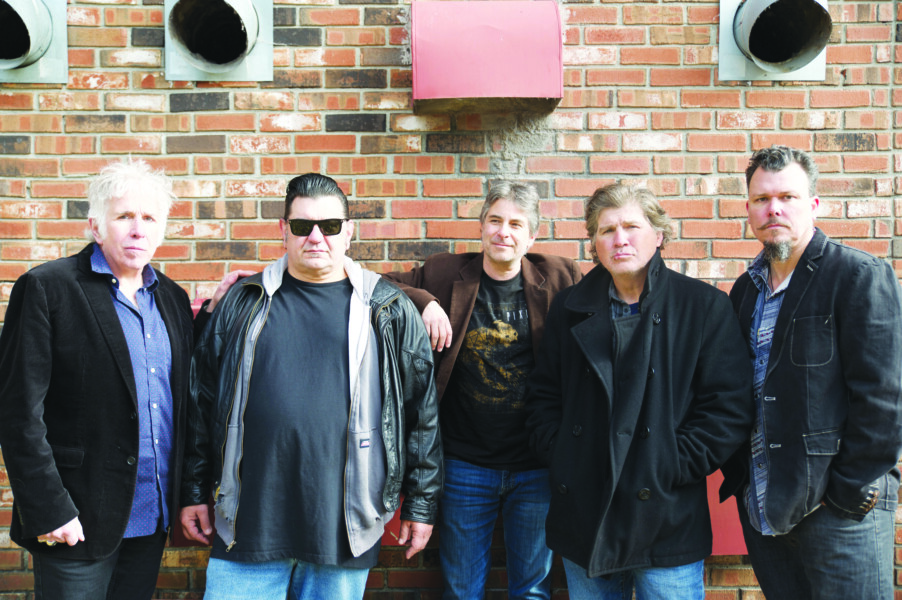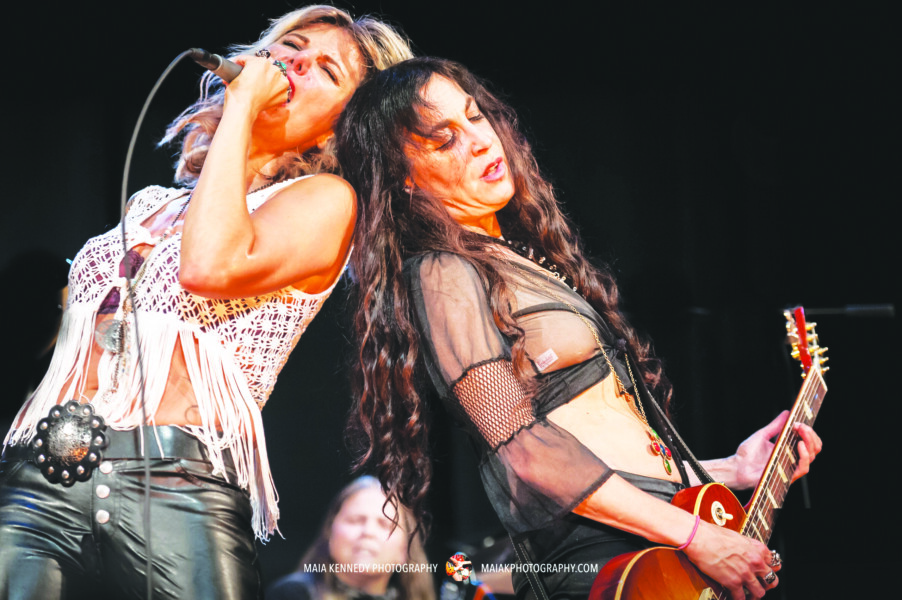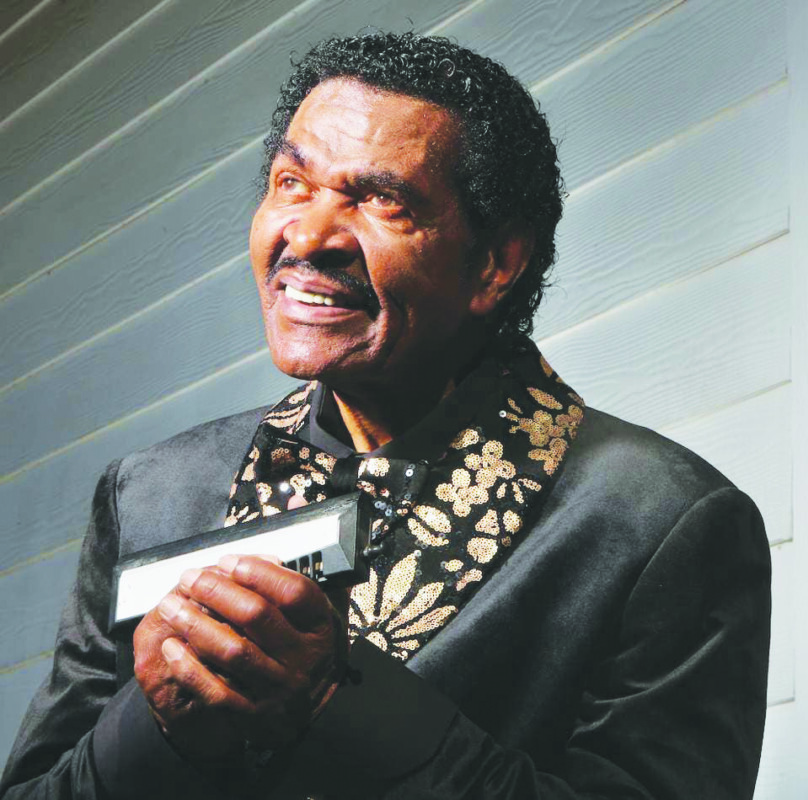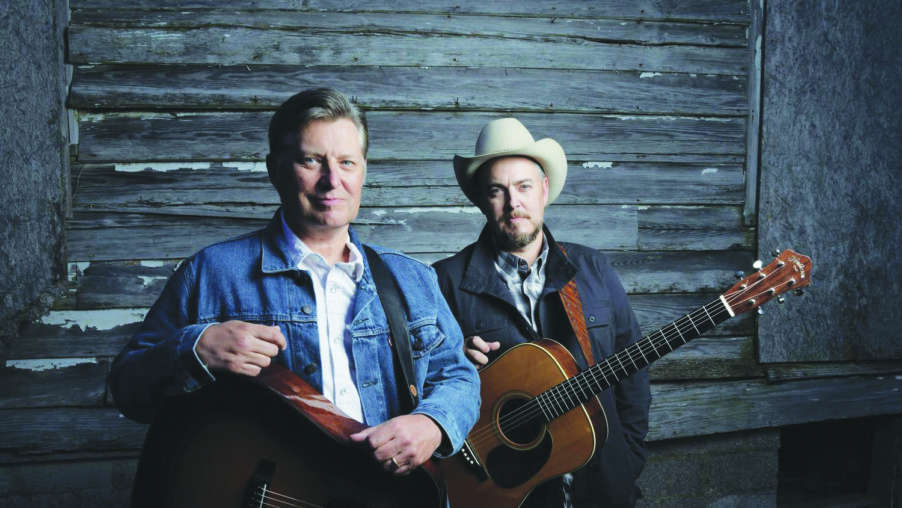Guitar-forward Winter Blues Fest
To celebrate an area band’s new recording contract, the 14th New England Winter Blues Festival has a slight name change this year. It’s now A Gulf Coast Records Revue, with four acts from the venerable Nederland, Texas, label sharing the stage: Popa Chubby, Albert Castiglia, Monster Mike Welch and The Wicked Lo-Down.
The first of four shows lands at Manchester’s Rex Theatre on Thursday, Feb. 15, with the others happening across the region over the weekend. The run promises plenty of explosive guitar. Popa Chubby has been making waves in the blues world since legendary producer Tom Dowd helmed his solo debut in 1994. Castiglia is another firebrand, who one critic called the “heir apparent” to the title “America’s King of the Blues.”
Welch got his nickname as a teenager from Blues Brother Dan Aykroyd and is one of New England’s premier blues rock guitarists. He signed with Gulf Coast last year. Finally, The Wicked Lo-Down is led by festival organizer Nick David. Their lead guitarist is Paul Size, well-known for his time in The Red Devils, who worked with Mick Jagger and Bruce Willis while cementing its reputation across Texas.
The official release date for The Wicked Lo-Down’s Gulf Coast debut, Out of Line, is March 8, but the band will have advance CDs for sale and will play material from it at shows. It’s a solid collection of blues rockers, and all but two are originals. Standouts include “If I,” a love-gone-wrong burner that echoes the Allman Brothers’ “Stormy Monday,” and “The Wildest One,” a poignant tribute to Lester Butler, Size’s bandmate in The Red Devils.
“He would roll with the Stones, till that black hearted woman knocked him off his throne,” David sings, a reference to Butler’s tragic overdose death at age 38 that was later determined to be a homicide. In a similar vein, “Marchin’ On” deals with the notion that no one cheats death. Speaking by phone recently, David called it one of his favorites.
“It’s about our mortality,” he said. “No matter what, time’s gonna catch up with you and it’s just gonna keep marching on, and once you’re gone, time’s moving still.” All things considered, however, the singer and harmonica player appears to have had the most fun with one of Out of Line’s covers, a recasting of the Britney Spears pop confection “Toxic.”
“Say whatever you want about Britney Spears — it’s pop, bubblegum, whatever — but the changes in that song are cool … they’re minor and dark and edgy,” he said. “I started to hear in my head what it would sound like as a rock and blues tune. It made me think of the Stevie Ray Vaughan song “Change It.”
Unsurprisingly, David’s bandmates were incredulous. “They were like, ‘dude … what is this nonsense you’re talking about?’ I’m like, ‘man, listen, you gotta hear what I’m hearing in my head.’ I told Paul my concept; he messed around with it and he sent me a little demo of what he thought I wanted to hear, and it was exactly what I wanted to hear.”
Once in the studio, “we just turned it into this gnarly shuffle. It’s as gut bucket and Texas shuffling as you can get, but it’s a f-ing weird piece of bubble gum pop. I’m hoping it’s going to make people pay attention a little more outside of the blues world [and] redirect their attention back to the original songs that we wrote…. I think we got a bunch of killers.”
The five-piece band — David, Size, guitarist Jeff Berg (who also engineered) and the rhythm section of Brad Hallen and Nick Toscano on bass and drums — co-produced the record. Though the blues elements are apparent, The Wicked Lo-Down is looking to be more than vintage, David said.
“When people ask what kind of band we are, this is my little standard quote and I think it’s pretty accurate. We’re a very heavily blues-influenced rock ’n’ roll band. I’ll add this caveat: We’re a very, very heavily blues influenced all original rock ’n’ roll band. We’re doing our own thing.”
New England Winter Blues Festival presents Gulf Coast Records Revue
When: Thursday, Feb. 15, 7:30 p.m.
Where: Rex Theatre, 23 Amherst St., Manchester
Tickets: $35 at palacetheatre.org
Additional shows:
Friday, Feb. 16, 8 p.m. at Blue Ocean Music Hall, Salisbury Beach, Mass.
Sunday, Feb 18, 8 p.m. at Jimmy’s Jazz & Blues Club, Portsmouth
Featured photo: The Wicked Lo-Down Courtesy photo.






